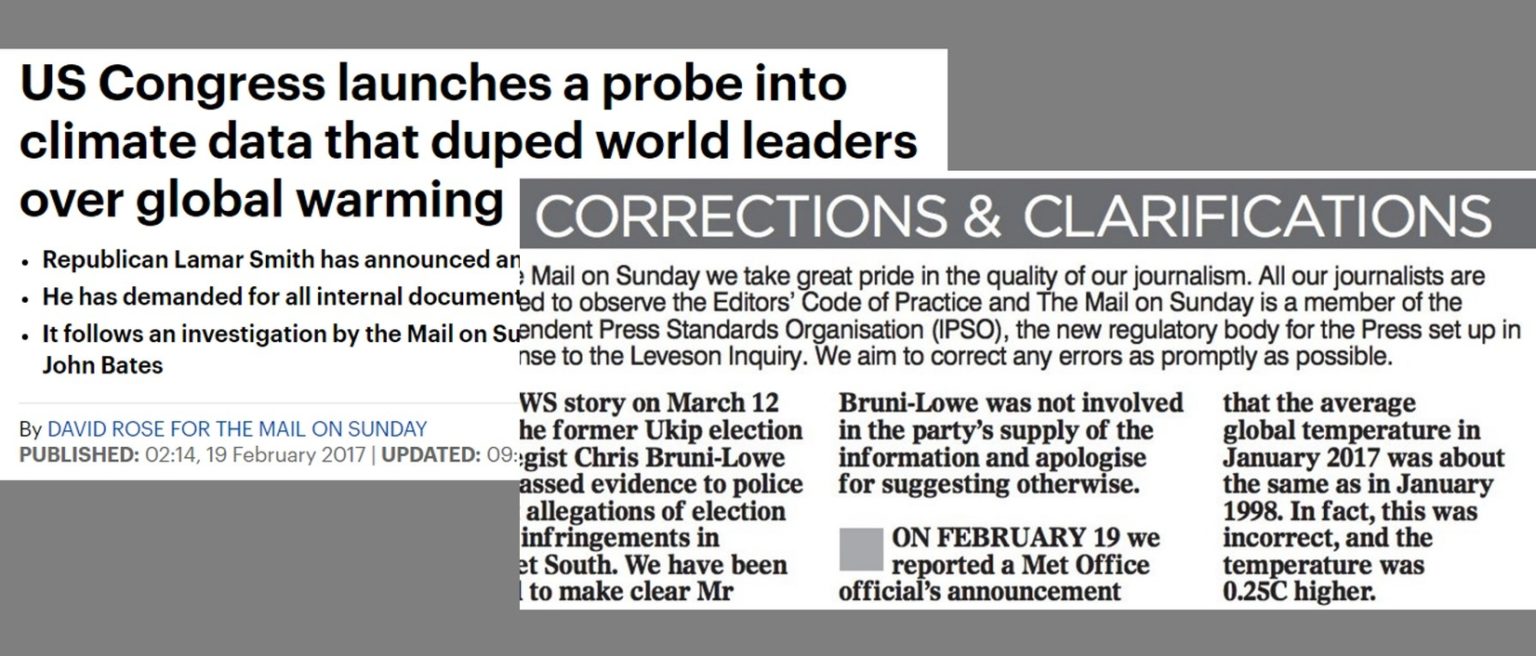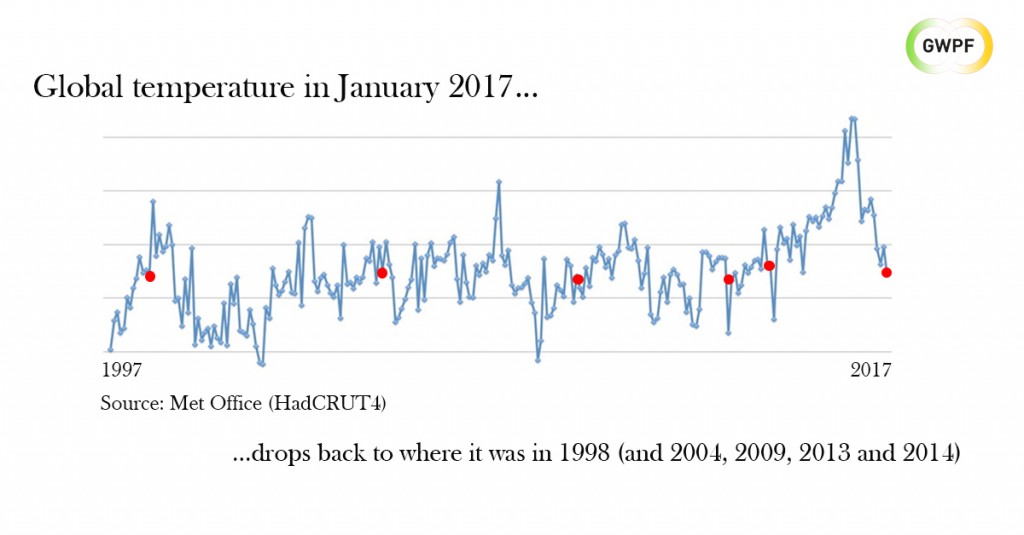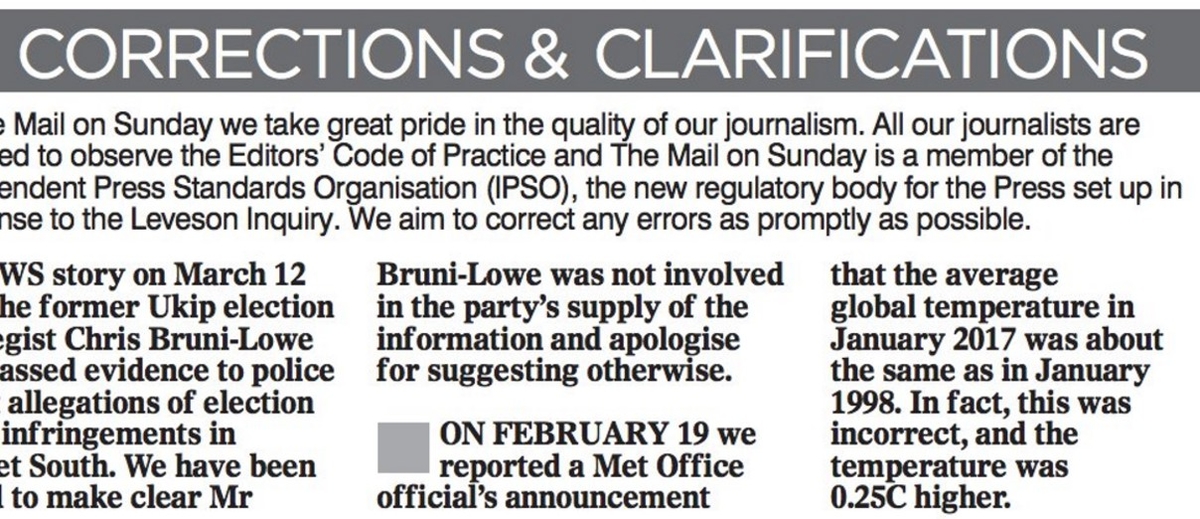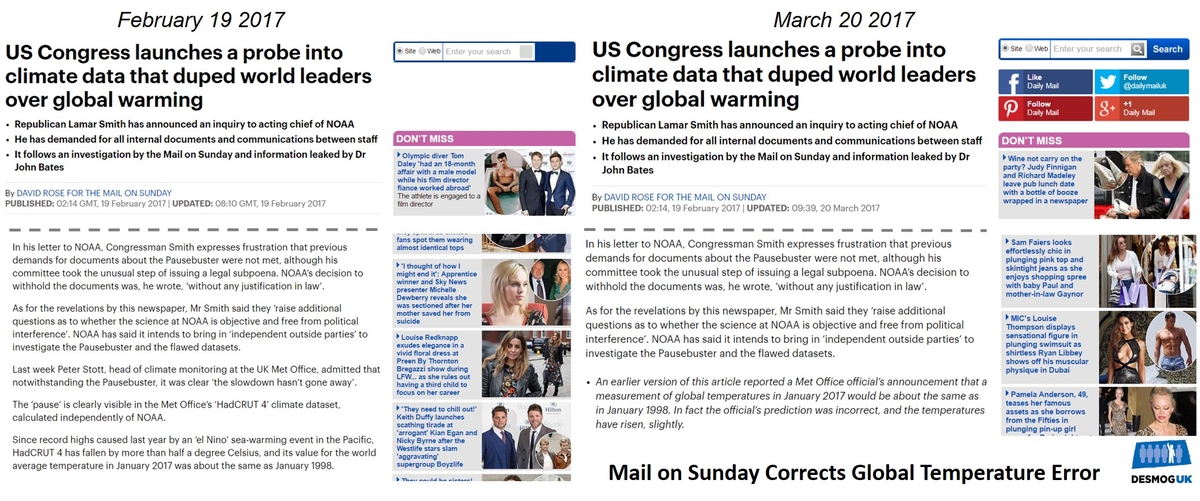It’s not always easy to own up to mistakes. So the Mail on Sunday deserves some credit for correcting an error it made reporting average global surface temperatures.
But it’s still unclear how the error came about.
In an article on February 19, Mail on Sunday journalist David Rose wrote that “the world average temperature in January 2017 was about the same as January 1998”. The article implied this was evidence for a global warming ‘pause’ — an argument of which climate science deniers are fond, no matter how many times scientists point out its failings.
The statement appeared in a follow up article to an ‘investigation’ that was widely criticised for trying to unfairly stir up scientific controversy.
The supposed similarity between the temperatures in 1998 and 2017 was hammered home by climate science denial campaign group, the Global Warming Policy Forum (GWPF), which reposted Rose’s article with its own graph highlighting the data.
The Mail on Sunday has now acknowledged the statement about the temperatures being “about the same” in both years is false, and that the average temperature in January 2017 was in fact 0.25 degrees celsius higher than in 1998.
But while it has held its hands up to error, it hasn’t clarified how the mistake came about.
The confusion stems from Rose originally claiming that the data showing Jan 2017 temperatures were unusually low came from the Met Office’s HadCRUT 4 record.
But Met Office climate scientist, John Kennedy, was quick to point out that the dataset had not been updated to include January 2017 at that time.
Re: your final paragraph. January 2017 HadCRUT4 isn’t out yet. @DavidRoseUKhttps://t.co/nkUtGwHDSL
— John Kennedy (@micefearboggis) 19 February 2017
The Mail on Sunday’s correction avoided any reference to HadCRUT 4, saying instead that the mistake came from reporting “a Met Office official’s announcement”.
But a spokesperson for the Met Office told DeSmog UK that it had no evidence of any of its staff suggesting the HadCRUT 4 data showed this or later retracting any such statement.
They said it would be “very helpful if the Mail on Sunday were able to provide evidence to the contrary”.
The Mail on Sunday’s claim about the origin of the mistake seemingly echoes a claim by the GWPF.
In a blog for the GWPF’s website posted last week, its ‘Science Editor’ and well-known climate science denier David Whitehouse, claimed “a scientist involved in the production of the HadCRUT 4 global surface temperature data set told us what January’s figure was before its official publication. It turns out they were wrong”. Whitehouse claimed the GWPF had “corrected the graphs accordingly”.
While two graphs seem to have been corrected, the erroneous GWPF graph that appears alongside the repost of the Mail on Sunday piece remains uncorrected.
The GWPF declined the opportunity to comment for this story, and would not tell DeSmog UK if it would correct or retract the faulty graph.
Subscribe to our newsletter
Stay up to date with DeSmog news and alerts










